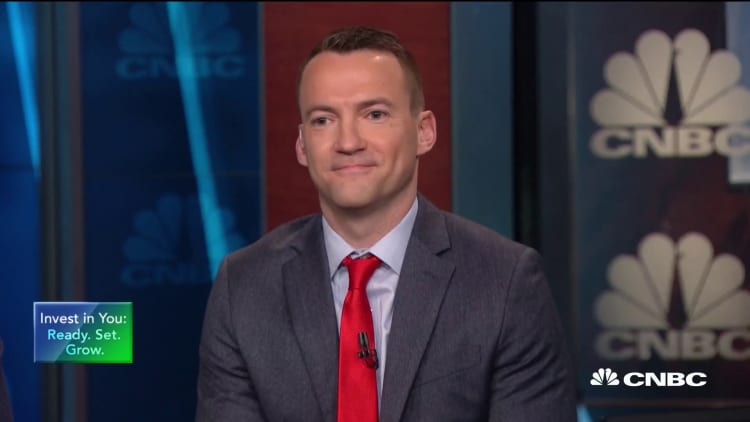
Bull markets can make investors a lot of money, but they also can create great opportunities for financial fraudsters like Bernie Madoff.
"Any time people decide to start taking more risks and interest rates go down, people get this fear of missing out and the time is ripe to take advantage," Ben Carlson, director of institutional asset management at Ritholtz Wealth Management and author of the new book, "Don't Fall For It: A Short History of Financial Scams" told CNBC's Halftime Report on Friday.
"Massive frauds were taking place in the Roaring '20s ... all of them came to light, on the scale of Madoff if you take it to today's dollars," Carlson said.
He invoked one of Berkshire Hathaway CEO and founder Warren Buffett's famous quotes as a warning for investors right now: "Only when the tide is going out do you discover who has been swimming naked."
As the world learned about Bernie Madoff in the aftermath of the Financial Crisis, "It's hard to keep those going when the market tanks," Carlson said.
The Madoff scheme highlights a key red flag to which investors should pay close attention: investment managements who also serve as custodians of assets.
"Custody is the biggest thing," Carlson said, because it made Madoff's ability to falsify investment statements easy.
Third-party custodians should be holding the assets and the investment management firm should not have direct access to those funds, he said.
Other signs include:
- When there's an aura of exclusivity in the pitch
- When the strategy is too complicated to understand
- When the story is too good to be true
"Look out for high-pressure sales tactics," Carlson said. He added that in the current market, with interest rates at a historic low and many investors searching for yield — even stretching for yield — it's not just the promise of outsized market gains — 30%, 40%, 50% — but high yields, specifically, that may entice investors.
"After 2008, it's more 'we will give you a steady income stream, your principal won't be touched, don't worry, there are no risks involved and no effort on your part," Carlson said. If you are being sold those promises "something is going on," he added.
Carlson stressed that investors should not become so afraid that they try to do it all on their own, but rather than being taken advantage of, they should take advantage of how easy it is today to look for evidence that an investment manager is trustworthy and legitimate.
"You can always outsource investment portfolios and planning, but you can't outsource understanding of what's going on with your money," he said.
SIGN UP: Money 101 is an 8-week learning course to financial freedom, delivered weekly to your inbox.
CHECK OUT: Effective financial scams 'sell a story,' says author Ben Carlson — here's how to make sure you don't buy it via Grow with Acorns+CNBC.
Disclosure: NBCUniversal and Comcast Ventures are investors in Acorns.






